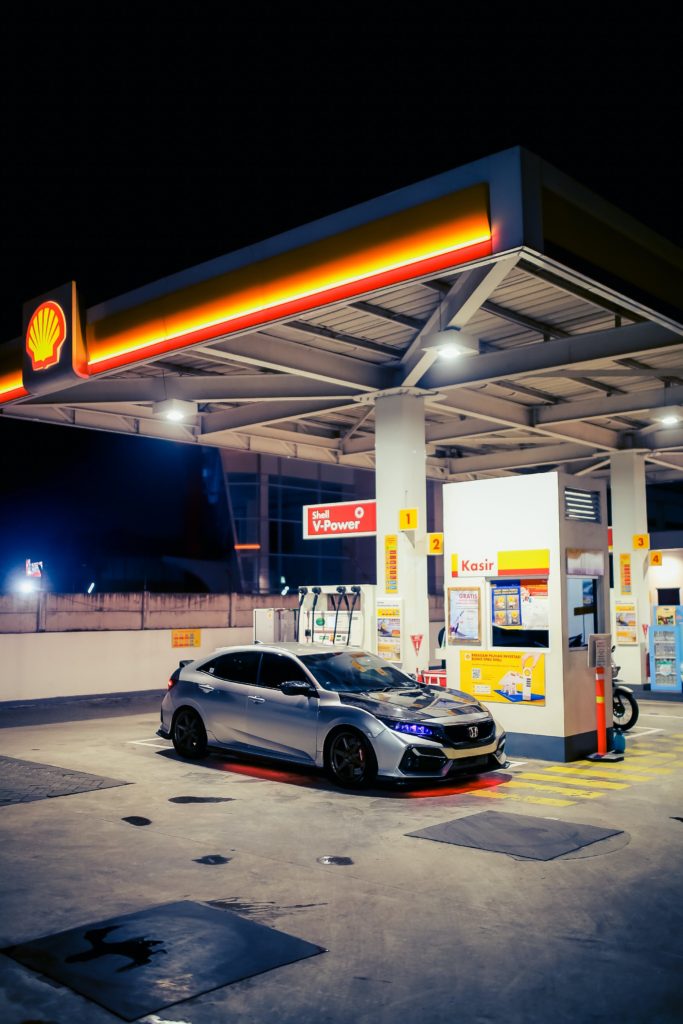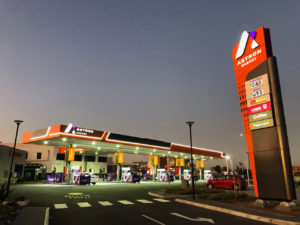Filling station property investments have become increasingly popular in South Africa, thanks to the country’s growing economy and expanding population.
These investments can be lucrative opportunities for investors looking for a stable income stream and long-term growth potential.
Filling stations not only offer revenue from fuel sales but also other revenue streams such as convenience stores, car wash services, ATMs and rental income.
However, investing in filling station properties requires careful consideration and due diligence to ensure the best possible returns. In this blog post, we will explore the filling station property investment process in South Africa, including finding the right location, acquiring the property, licensing and permits, building and construction, potential returns, and associated risks.
Whether you’re an experienced investor or new to the world of property investment, this guide will provide you with valuable insights and help you make informed decisions.
Understanding the Filling Station Property Investment Process in South Africa
Investing in filling station properties in South Africa involves a series of processes that require careful consideration and planning. These processes include finding the right location, acquiring the property, obtaining necessary licenses and permits, building and construction, among others.
Finding the right location
Finding the right location is essential to the success of a filling station investment. The location of the property plays a critical role in determining the level of demand for fuel and other services offered by the filling station. When selecting a location, it’s essential to consider factors such as traffic flow, proximity to major roads and highways, and the local population’s size and demographics.
Acquiring the property
Once you have identified a suitable location, the next step is to acquire the property. This involves financing the investment, conducting due diligence, and negotiating the purchase price. There are several financing options available, including bank loans, private funding, and joint venture partnerships. Before finalizing the purchase, it’s essential to conduct due diligence and property inspections to ensure that the property is in good condition and meets all legal requirements.
Costs of Opening a New Fuel Station or Buying an Existing Fuel Station in South Africa
Opening a new fuel station or purchasing an existing one in involves various costs that you need to consider. The total investment required depends on several factors, including the location, size, infrastructure, and branding of the fuel station.
Here is an overview of the costs associated with both options:
Opening a New Fuel Station
When starting from scratch, the costs of opening a new fuel station can be significant. Here are some key expenses to consider:
a. Land Acquisition: The cost of acquiring suitable land for the fuel station can vary greatly depending on the location. Prices are typically higher in prime areas with high traffic volumes. Land acquisition costs can range from a few million (R1m to R5m) to tens of millions of Rand, depending on the size and location of the property.
b. Construction and Infrastructure: Building a new fuel station requires significant investment in construction and infrastructure. This includes costs associated with excavation, site preparation, fuel storage tanks, fuel pumps, canopies, convenience stores, car wash facilities, signage, and electrical and plumbing systems. The total construction cost can vary greatly depending on the size and complexity of the fuel station, but it is typically around +- R15m to R20m
c. Licensing and Permits: Obtaining licenses and permits from regulatory bodies, such as the Department of Energy, local municipalities, and environmental authorities, incurs costs. These costs can include application fees, environmental impact assessments, compliance inspections, and legal fees. It is important to budget for these expenses, as they are necessary to ensure compliance with regulations.
d. Working Capital: It is essential to have sufficient working capital (if you choose to also operate the business. But not applicable if you are only the property owner and not the Operator) to cover operational expenses, inventory, staff wages, and marketing efforts during the initial months of operation when revenue may be limited.

Buying an Existing Fuel Station
Purchasing an existing fuel station can offer advantages such as an established customer base, existing infrastructure, and operational systems. The costs associated with buying an existing fuel station include:
a. Purchase Price: The price of buying an existing fuel station can vary significantly based on factors such as location, fuel sales volume, revenue, profitability, and condition of the property and infrastructure. Generally filling stations pumping in +- 300,000 litres of fuel per month are considered to be “Good”.
Anything over 500,000 litres is considered to be a very good fuel station. Do note however that badly managed, but well located fuel sites could be pumping less than 300,000 litres per month and THAT IS WHERE OPPORTUNITY lies, since you could buy the site (hopefully at a discounted price) and improve performance to extract lucrative profits.
The purchase price may be determined through negotiations between the buyer and the seller, with consideration given to factors such as the market value and the potential for future growth.
- Note that depending on the deal, you could have the option to buy:
- Only the fuel business itself (to pump the fuel and sell through the convenience store. This is referred to as being the “Operator”))
- Or you could buy just the property (excluding the business) and earn rental income from the businesses that trade from the property (in this case you are the Property Owner only).
- OR you could buy Both the business and the property (ie be the “Operator and the Property Owner).
b. Due Diligence Costs: Before purchasing an existing fuel station, conducting thorough due diligence is crucial. This may involve hiring professionals, such as accountants, attorneys, and environmental consultants, to assess the financial records, legal status, environmental compliance, and overall condition of the fuel station. These due diligence costs should be factored into the total investment. Detailed feasibility and due diligence reports could cost anywhere from a couple thousand Rands to over one hundred thousand Rand. Companies like UFuel specialise in providing services to the industry for due diligence reports and licenses.
c. Renovation and Rebranding: Depending on the condition and branding of the existing fuel station, renovation and rebranding costs may be necessary to align the station with the buyer’s vision and branding strategy. These costs can include upgrading fuel pumps, refurbishing the convenience store, redesigning signage, and implementing a new brand identity.
d. License Transfer Fees: Transferring licenses and permits from the previous owner to the buyer may involve fees and administrative costs. These fees vary depending on the specific licenses and permits involved.
It is important to note that the costs provided above are estimates and can vary significantly based on factors such as location, market conditions, size, and specific project requirements. Conducting thorough market research, engaging with industry experts, and consulting with financial advisors.

Acquiring the Property and Various Financing Options
Acquiring the right property is a crucial step in the filling station property investment process in South Africa. Once a suitable location has been identified, you’ll need to explore various financing options to fund the acquisition. Here, we will discuss some common financing options and how the financing can be structured through each option.
Bank Loans: One of the most traditional financing options for acquiring a filling station property is obtaining a loan from a bank. Banks offer commercial property loans specifically tailored for real estate investments. The financing structure for bank loans typically involves the following:
a. Loan Amount: The bank assesses the value of the property and provides a loan based on a percentage of the property’s appraised value. This percentage may vary depending on factors such as the borrower’s creditworthiness, the property’s location, and market conditions. On average most banks will finance up to 70% of the property’s cost or value, whichever is the lower amount. When acquiring the actual fuel business, most banks will finance up to 50% to 60% of the cost.
b. Interest Rate: Banks charge an interest rate on the loan amount, which can be fixed or variable. The interest rate may be influenced by factors such as the borrower’s credit history, prevailing market rates, and the loan term.
c. Repayment Term: The repayment term for bank loans can range from 7 to 10 years. The borrower makes regular monthly payments over the term of the loan to repay the principal amount and interest.
d. Collateral and Personal Guarantees: Banks often require the filling station property itself to serve as collateral for the loan. Additionally, personal guarantees from the borrower or other stakeholders may be necessary to secure the loan.
Private Funding: Private funding involves securing financing from individuals or private investment firms. This option provides more flexibility and may be suitable for investors who do not meet the strict requirements of traditional banks. The financing structure for private funding can vary depending on the agreement reached between the investor and the private funder.
Some potential structures include:
a. Equity Investment: The private funder invests directly in the filling station property in exchange for an ownership stake. This allows the investor to access funds without incurring debt. Profit-sharing arrangements and exit strategies are typically defined in the agreement.
b. Joint Venture Partnership: The investor forms a partnership with the private funder, where both parties contribute capital and share in the profits and risks of the investment. The financing structure and profit-sharing arrangement are negotiated and documented in a joint venture agreement.
c. Mezzanine Financing: Mezzanine financing combines elements of debt and equity financing. The private funder provides a loan that ranks subordinate to senior debt but may convert into an ownership stake if certain conditions are met.
It is crucial to note that the financing options outlined above are not exhaustive, and other financing avenues may be available based on individual circumstances. It is recommended that investors consult with financial advisors, real estate professionals, and legal experts to assess the suitability of each financing option and structure the financing in a manner that aligns with their investment strategy and goals.
Funding Opportunities for BEE Candidates
In South Africa, Broad-Based Black Economic Empowerment (BEE) policies have created opportunities for BEE candidates to access funding options with favorable terms.
These initiatives aim to promote economic transformation and address historical inequalities by supporting BEE candidates in acquiring filling station properties and participating in the country’s economic growth. Several organizations and programs offer funding products specifically tailored for BEE candidates.
Here are some notable organizations and their funding offerings:
- National Empowerment Fund (NEF): The NEF is a government agency that provides funding and support to BEE candidates across various sectors. They offer tailored funding solutions, including equity financing, loans, and grant funding. BEE candidates can access financing through the NEF to acquire filling station properties, with terms that may include reduced interest rates, flexible repayment structures, and extended loan tenures.
- Industrial Development Corporation (IDC): The IDC is a government-owned development finance institution that supports industrial projects and BEE initiatives. They provide financing for property acquisitions, expansions, and development projects. BEE candidates can benefit from the IDC’s funding options, which include equity participation, loans, and grants. The terms of these funding products may be designed to meet the specific needs of BEE candidates, with preferential interest rates and repayment structures.
- Small Enterprise Finance Agency (SEFA): SEFA is a government agency that focuses on financing and supporting small and medium-sized enterprises (SMEs), including BEE candidates. They offer funding products tailored to the needs of BEE candidates, such as term loans, asset finance, and bridging finance. BEE candidates can access SEFA’s funding with favorable terms, including competitive interest rates and flexible repayment options.
- Black Business Supplier Development Programme (BBSDP): The BBSDP is an initiative by the Department of Trade, Industry, and Competition (DTIC) aimed at supporting BEE candidates. The program provides financial assistance to BEE candidates through grants and incentives. Funding obtained through BBSDP can be utilized for property acquisitions, development projects, and business expansion. The program’s terms may include low or zero-interest rates, partial funding, and repayment holidays.
- BEE-focused Financial Institutions: Several financial institutions in South Africa have dedicated BEE financing divisions that offer funding solutions specifically tailored for BEE candidates. These institutions include ABSA, Standard Bank, FirstRand Bank, as well as smallerniche players like Ithala Bank and Business Partners. They provide various funding options, including loans, revolving credit facilities, and equity partnerships, with preferential interest rates and repayment terms for BEE candidates.
To access these funding opportunities, you should familiarize yourself with the specific eligibility criteria and application processes of each organization. It is advisable for BEE candidates to engage with industry bodies, consult with financial advisors, and leverage the services of BEE consultants who specialize in securing funding for BEE initiatives.

Licensing and permits
Investing in a filling station property requires obtaining several licenses and permits. The regulatory framework governing filling station properties in South Africa can be complex, and it’s essential to understand the legal requirements to operate a filling station. The necessary licenses and permits may include environmental permits, safety permits, fire safety permits, and trade licenses, among others.
Investing in a filling station property in South Africa requires obtaining several licenses and permits to operate legally. Among these licenses and permits, the Site and Retail License is essential for the operation of a filling station.
Site License
A Site License is required for the land on which the filling station will be built. The license is issued by the Department Of Minerals, Resources and Energy, and it ensures that the site meets specific requirements before the filling station is constructed. The site license requirements include:
- The site should be at least 1,000 square meters in size, and the property must be zoned for commercial use.
- The site should be located within a designated area for fuel retailing, which is typically along major roads and highways.
- The site should be accessible to vehicles and have enough space for fuel pumps, convenience stores, and other amenities.
You must complete the prescribed application form (i.e. which is form DE 29)
Retail License
A Retail License is required for the operation of a filling station. The license is issued by the Department of Mineral Resources and Energy (DMRE). The Retail License requirements include:
- The filling station must comply with all relevant health, safety, and environmental regulations.
- The filling station must have appropriate equipment, including fuel pumps, fuel storage tanks, and safety equipment, in compliance with the South African Bureau of Standards (SABS).
- The filling station must have adequate fire protection measures in place, including fire extinguishers, fire alarms, and automatic fire suppression systems.
- The filling station must have trained staff to operate the filling station, including the fuel pumps, convenience store, and car wash services.
It’s essential to note that obtaining the Site and Retail License can be a lengthy and complicated process, and it’s essential to engage the services of an experienced attorney or consultant to ensure that all legal requirements are met.
Building and construction
Building and construction are essential aspects of filling station property investment. Developing a comprehensive construction plan is crucial to ensure that the property is built to the required standards and specifications. Engaging the right contractors and project management are also essential to ensure that the construction process runs smoothly and efficiently.
Finding the right location, acquiring the property, obtaining necessary licenses and permits, and building and construction are critical steps in the investment process. In the next section, we will explore the potential returns of filling station property investments in South Africa.

III. Potential Returns on Filling Station Property Investments in South Africa
Investing in a filling station property offers the potential for attractive returns. Filling stations generate income through various revenue streams, making them a lucrative investment opportunity. Here are some key aspects to consider regarding the potential returns on filling station property investments:
- Fuel Sales: Fuel sales form the primary source of revenue for filling stations. As the demand for fuel remains constant, especially with the increasing number of vehicles on the road, there is a steady income stream generated through fuel sales. The profit margin on fuel sales may vary due to factors such as fuel price fluctuations and competition in the market.
- Convenience Store Sales: Many filling stations have convenience stores attached to them, offering a wide range of products and services. These stores cater to the needs of customers who visit the filling station, providing an additional source of income. The convenience store sales can include items such as snacks, beverages, automotive products, and other daily essentials.
- Car Wash Services: Car wash facilities at filling stations can be another revenue-generating aspect. Many customers prefer to have their vehicles washed while refueling, providing an opportunity for the filling station to offer car wash services for an additional fee. This can contribute to the overall profitability of the investment.
- ATM and Other Revenue Streams: Some filling stations provide additional services such as ATMs, food outlets, and other retail offerings. These additional revenue streams can enhance the overall returns on the investment by attracting more customers and generating supplementary income.
Rental Income
Another revenue stream in a fuel station is the actual property. In some cases the fuel operator (dealer) is not the owner of the property itself. So if you become the property owner, it means that you can earn rental income from the Dealer or more preferably the fuel company. In many cases fuel companies will sign 10 year long leases with the property owner and then sub let the property to a dealer (franchisee).
Banks are quite fond of these long term leases and will often be more willing to grant higher than usual loan amounts since these leases are typically triple nett leases, which means that the tenant (fuel company) pays the rent plus all property related expenses (rates and taxes, security and insurance) and maintenance.
In addition to the base rental, the landlord can often times also earn a portion of the fuel sales on site. It all depends on how the deal has been structured with the tenant. Generally the higher the rental amount, the less chance that the landlord will also earn from the fuel sales. Whereas if the landlord accepts a slightly lower rental amount, the more likely it is that he/she will be able to also earn a few cents per litre on every litre of fuel sold on the property.
When you become the property owner of a fuel site, you don’t have to be involved in the daily operations at all. But you can then earn rental income from the Dealer/fuel company for the forecourt, the convenience store, the on-site restaurant, car wash, and ATMs.
Factors Impacting Returns:
While filling station property investments have the potential for significant returns, it is important to consider the factors that can impact profitability:
- Competition: The level of competition in the vicinity of the filling station can affect its profitability. High competition may lead to price wars and lower profit margins. Therefore, conducting a thorough market analysis and selecting a location with a favorable competitive landscape is crucial.
- Fuel Price Fluctuations: Fuel prices are subject to volatility due to various factors such as global oil prices, exchange rates, and taxation policies. Fluctuations in fuel prices can directly impact the profitability of a filling station. It is important to consider market trends and factors affecting fuel prices when evaluating the investment potential.
- Consumer Behavior Trends: Understanding and adapting to consumer behavior trends is essential for maximizing returns. Consumer preferences may shift towards electric vehicles, alternative fuels, or changes in shopping habits. Staying informed about such trends and adjusting business strategies accordingly can help mitigate risks and maintain profitability.
The income streams from fuel sales, convenience store sales, car wash services, and other revenue streams contribute to the profitability of the investment. However, factors such as competition, fuel price fluctuations, and consumer behavior trends should be carefully considered to ensure sustainable returns on the investment. Conducting thorough market research, educating yourself on property investments and staying updated on industry trends are crucial for making informed investment decisions.

- Risks Associated with Filling Station Property Investments in South Africa
While filling station property investments in South Africa can be lucrative, it is essential to be aware of the potential risks involved. Understanding and mitigating these risks is crucial for making informed investment decisions. Here are some key risks associated with filling station property investments:
- Political and Regulatory Risks: Changes in government policies and regulations can significantly impact filling station operations and profitability. Alterations in taxation policies, fuel pricing mechanisms, or environmental regulations can affect the financial viability of the investment. It is important to stay updated on the political and regulatory landscape and assess the potential impact on the investment.
- Economic Risks: Filling station investments are exposed to economic risks that can affect demand for fuel and related services. Economic downturns, recessions, or changes in consumer spending patterns can impact the profitability of the investment. Fluctuations in fuel demand due to factors such as fuel efficiency improvements, electric vehicle adoption, or changes in transportation infrastructure can also pose risks.
- Operational Risks: Filling stations come with inherent operational risks that need to be managed effectively. Safety and security risks, such as fuel leaks, fire hazards, or theft, can pose threats to the property, customers, and employees. Adequate safety measures, including proper training, equipment maintenance, and security systems, should be implemented to mitigate these risks. Additionally, ongoing maintenance and repair costs can impact profitability, requiring careful budgeting and planning.
- Environmental Risks: Filling stations are subject to environmental risks, particularly related to fuel storage and handling. Spills or leaks can lead to environmental contamination, necessitating costly cleanup procedures and potential legal liabilities. Compliance with environmental regulations, including proper storage and disposal practices, is crucial to mitigate these risks and ensure environmental sustainability.
- Market Competition: The level of competition in the filling station industry can impact profitability. High competition in a particular area can lead to price wars and reduced profit margins. Conducting a thorough market analysis and selecting a location with a favorable competitive landscape can help mitigate this risk.
- Financing and Interest Rate Risks: Securing financing for filling station property investments can be a challenge. Fluctuations in interest rates can impact borrowing costs and, consequently, the profitability of the investment. It is crucial to assess financing options carefully and consider potential interest rate fluctuations when evaluating the investment’s financial viability.
Mitigating Risks:
To mitigate the risks associated with filling station property investments, it is recommended to:
- Conduct thorough due diligence and research before making an investment decision.
- Stay updated on political, regulatory, and economic trends and assess their potential impact on the investment.
- Develop a comprehensive risk management plan that addresses safety, security, and environmental concerns.
- Diversify income streams by offering additional services or amenities at the filling station.
- Maintain a contingency fund to address unexpected operational or maintenance expenses.
- Work with experienced professionals such as attorneys, consultants, and property managers who have expertise in the filling station industry.
While filling station property investments in South Africa offer potential rewards, they are not without risks. By understanding and mitigating these risks through diligent research, proper risk management, and strategic planning, investors can position themselves for success in this competitive and dynamic market
- Conclusion
Investing in filling station properties in South Africa can be a lucrative venture, offering attractive potential returns for investors. However, it is essential to approach these investments with careful consideration and thorough understanding of the associated processes, risks, and market dynamics.
Throughout this article, we have explored the key aspects of the filling station property investment process in South Africa. From finding the right location and acquiring the property to obtaining licenses and permits, and managing the construction process, each step requires attention to detail and adherence to legal and regulatory requirements.
We have also discussed the potential returns that can be generated through various revenue streams such as fuel sales, convenience store sales, car wash services, and additional amenities. However, it is important to remain aware of the factors that can impact returns, including competition, fuel price fluctuations, and shifts in consumer behavior.
Moreover, we have highlighted the risks associated with filling station property investments, including political and regulatory changes, economic downturns, operational and environmental risks, market competition, and financing challenges. Mitigating these risks requires thorough research, diligent risk management, and working with experienced professionals.
In conclusion, filling station property investments in South Africa can offer significant opportunities for financial growth and stability. By understanding the investment process, carefully assessing potential returns, and effectively managing risks, you can position yourself for success in this dynamic industry.
Before making any investment decisions, it is crucial to conduct further research, seek expert advice, and evaluate individual circumstances and risk tolerance. By doing so, you can navigate the filling station property investment landscape with confidence and increase your chances of achieving long-term profitability and success

Aslam is from Johannesburg, South Africa and graduated with a BComm degree from the University of South Africa and followed that up with a BComm Hons degree in Finance and Investments.
He has spent over 18 years in the financial services sector, with 12.5 years in the commercial property finance arena with 3 of the major banks in the country.
His specialty being deal structuring and finance solutions for commercial property investors and developers across the commercial property sector, including large scale retail developments, high density residential investments , industrial and office property.
Aslam was also a fast food franchise investor for 7 years, is experienced in digital marketing and online lead generation and has owned and managed multiple residential properties.






